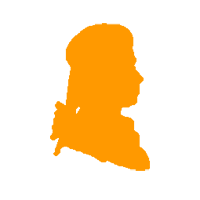| Toccata á 8 'Athalanta' for Winds & Strings Aurelio Bonelli Vents & Orchestre Cordes |
VoirPDF : Toccata á 8 'Athalanta' for Winds & Strings (12 pages - 308.55 Ko)66x⬇ VoirPDF : Basson (57.55 Ko) VoirPDF : Violoncelle (57.66 Ko) VoirPDF : English Cor (58.86 Ko) VoirPDF : Alto (58.31 Ko) VoirPDF : Violon 1 (57.41 Ko) VoirPDF : Violon 2 (58.13 Ko) VoirPDF : Flûte (57.67 Ko) VoirPDF : Hautbois (58.28 Ko) VoirPDF : Conducteur complet (235.17 Ko)MP3 : Toccata á 8 'Athalanta' for Winds & Strings 46x⬇ 57x
| Compositeur |  Bonelli , Aurelio | ||
| Instrumentation | Vents & Orchestre Cordes | ||
| Genre | Renaissance | ||
| Arrangeur Editeur |  | ||
| Droit d'auteur | Public Domain | ||
| Ajoutée par magataganm, 25 Avr 2021
Aurelio Bonelli (c.1569 – after 1620) was an Italian
composer, organist and painter. Born in Bologna,
practically nothing is known about him save that he was
student of the painter Agostino Carracci. After Adriano
Banchieri moved to Imola in 1601 Bonelli took his job
as organist at San Michele in Bosco.
Towards 1600 Bonelli is known to have been working as organist in Milan. Also, in 1620 he was organist of San Giovanni in Monte, Bologna. Bonelli published at least one a volume of thr...(+) | |||
Suggestions Boutique
Suivant










 PARTITION
PARTITION